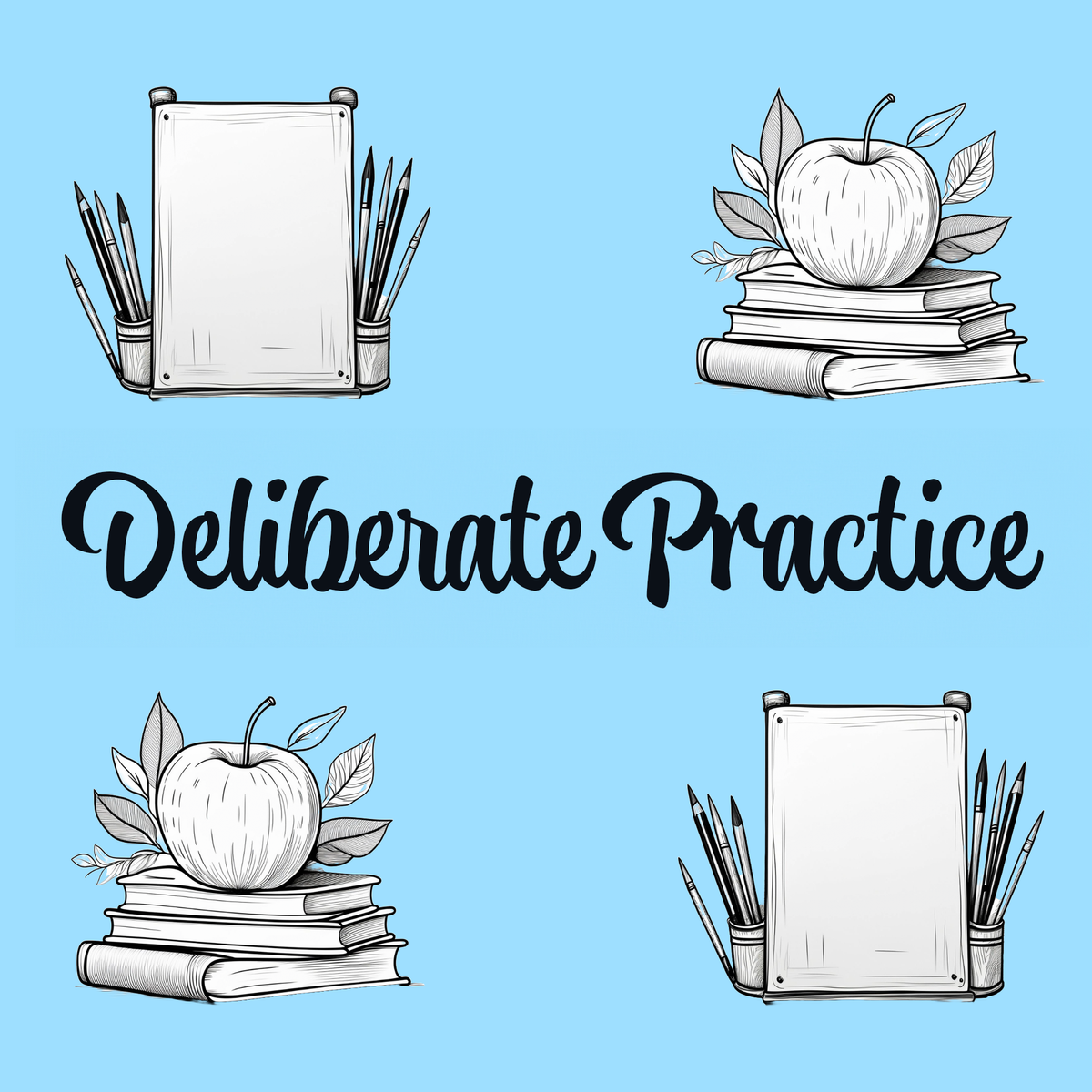Mastering Skills with Precision: The Art of Deliberate Practice

Hi Team,
As we pursue excellence in any field, one concept often emerges as the key to success: practice. But not just any kind of practice—deliberate practice. Coined by psychologist Anders Ericsson, deliberate practice is a highly structured activity designed specifically to improve performance. It's about more than just putting in the hours; it’s about how you use those hours to push beyond your current abilities. So, what exactly is deliberate practice, and how can it be harnessed to supercharge your learning?
The Essence of Deliberate Practice
Deliberate practice is a focused and purposeful effort aimed at improving specific aspects of performance. Unlike casual or repetitive practice, where you might go through the motions, deliberate practice requires you to step outside your comfort zone. It's about targeting the precise skills that need improvement, setting challenging goals, and seeking feedback to correct errors.
This method is grounded in the idea that expertise is not innate; it's cultivated. Ericsson’s research, which laid the foundation for the 10,000-hour rule popularized by Malcolm Gladwell, shows that what separates top performers from the rest is not talent alone but how they practice. Deliberate practice pushes the boundaries of your current capabilities, leading to incremental improvements over time.
Breaking Down the Components
- Well-Defined Goals: Deliberate practice begins with setting clear, specific, and achievable goals. Instead of aiming to "get better" at something, break it down. If you're learning a musical instrument, for example, your goal might be to master a particular piece at a certain tempo. This sharp focus helps direct your practice efforts.
- Focused Practice Sessions: Unlike the typical idea of practice, which might involve mindlessly repeating a task, deliberate practice is intensely focused. Short, concentrated sessions where you engage deeply with the material are more effective than long, drawn-out practices. This helps keep your mind sharp and engaged, preventing burnout.
- Immediate Feedback: One of the critical aspects of deliberate practice is the immediate feedback you receive. This could come from a coach, teacher, or even self-assessment through video recording or review. The goal is to identify mistakes as they happen and adjust your approach immediately, reinforcing the correct methods and avoiding the formation of bad habits.
- Stretching Beyond Comfort: Deliberate practice isn’t comfortable. It requires pushing yourself just beyond your current abilities. This might mean tackling a challenging piece of music, writing on unfamiliar topics, or working on complex problems. This discomfort is essential for growth; it’s where learning happens.
- Repetition with Variation: While repetition is key to mastering any skill, it's not just about doing the same thing over and over. Deliberate practice involves repeating skills with slight variations, which forces your brain to adapt and strengthens your learning. For instance, if you're a writer, this might involve varying your sentence structures or experimenting with different tones.
Applying Deliberate Practice in Everyday Life
You don’t need to be an aspiring athlete or musician to benefit from deliberate practice. This approach can be applied to any area of life where you seek improvement. If you’re learning a new language, set specific vocabulary goals, engage in focused study sessions, seek feedback from native speakers, and constantly push your conversational boundaries.
In the workplace, deliberate practice might involve breaking down a complex project into smaller tasks, focusing on developing specific skills like public speaking or data analysis, and seeking feedback from peers or mentors. The key is to stay disciplined, maintain a growth mindset, and continually challenge yourself to improve.
Closing Remarks
Deliberate practice is not a quick fix; it’s a long-term strategy for continuous improvement. It requires dedication, patience, and a willingness to embrace discomfort. However, the rewards are significant. By engaging in deliberate practice, you not only improve your skills but also cultivate a mindset of excellence, resilience, and lifelong learning.
In a world where time is our most valuable resource, deliberate practice offers a way to make the most of every minute spent on self-improvement. Whether you're looking to excel in your career, pick up a new hobby, or simply become better at something you love, mastering the art of deliberate practice is your blueprint for success.
If you liked this newsletter then we would be grateful if you check out our website and subscribe to receive these updates, which can be found with the link below:
